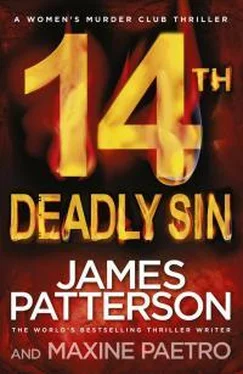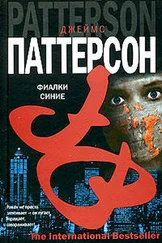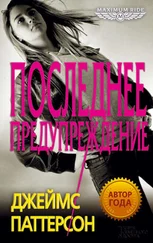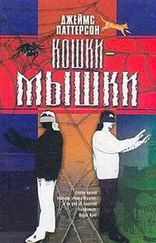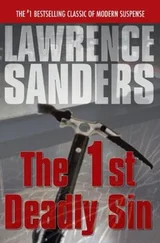“Did you know there was going to be a raid on Wicker House?”
“How would I know anything about that?”
“Seven people were shot to death. You knew those men, Donnie. You worked with them. You want whoever killed them to get away with it?”
“I hope you get whoever did that. I do.”
He looked at me like I was supposed to believe him.
I said, “Do you know anything about men wearing police Windbreakers knocking over mercados? Hitting up drug dealers?”
“What? Cops taking drugs and money offa dealers and keeping it for theirselves? I never heard of anything like that. ”
He laughed. Then he got serious. He leaned across the table and said, “Listen up, Sergeant. Other people will take care of this problem that happened at Wicker House, OK? They’re a whole lot better at it than you.”
That stopped me. “Meaning what? Who’s going to take care of this? How?”
Wolfe shrugged. His flip, phony wise-ass personality was back. “Follow the money, Sergeant.”
“Explain what you mean by that,” I said.
He said, “I get my phone call now? My girlfriend is worried about why I’m not home. Did I say? We’re having a baby.”
“Who will get to kiss his daddy in twelve to fifteen?”
I left the room and walked next door. I looked through the glass into Interview 2 and watched Conklin get absolutely nowhere with Ralph Valdeen. Another stockroom boy. Didn’t know nothing.
Seven men had died, and if that massacre was over wicker furniture, it was a first. More likely, big money and a lot of drugs had been boosted from that drug factory.
I thought about what Wolfe had said in that one honest-sounding statement: Someone would take care of the men responsible. Someone better at it than us. “Follow the money.”
I had a shivery feeling as I thought about what kind of payback there might be for the massacre at Wicker House. A feeling the Irish might express by saying “Someone just walked over my grave.”
CHAPTER 46
CINDY WAS BEING treated like a celebrity in a bookstore called Book Revue on Long Island, New York.
This part—the book signings, the people applauding her—she hadn’t thought about this at all during the years she’d spent thinking about writing a book.
She had staked out psycho killers in sketchy areas, had spent nights in rough motels or in her car, had worked nights and weekends and pestered cops, even ones she loved, for information that would become a great story, possibly an exclusive one. She had worked the crime desk for the challenge of finding an angle that the police didn’t have, for the rush of turning her hand-mined facts into dramatic prose.
It had been a nonstop thrill, and now there was this.
In a time when bookstores were going virtual, this one was what a real bookstore still looked like in her dreams. There were a blue-and-white-checked floor, thousands of linear feet of bookshelves, comfortable nooks for people to sit and read in, and an inviting performance space where writers could give readings and sign books.
The owner of Book Revue, Bob Klein, was coming over to talk to her now. Bob was a good-looking man in his fifties wearing glasses, a starched shirt, and a smart tan suit.
“Cindy, I’ve got open cartons under your table. I’ll test the microphone for you when you’re ready.”
There was a rope line leading to a table with a blowup of her picture on an easel behind it, and another easel holding a poster of her book jacket. A stack of books rested on the table with a line of pens. And people were coming into the store in response to the ad and were filling up the chairs, easily twenty women, who lit up when they recognized her from her picture.
She was talking to Bob when her phone rang.
Cindy answered the call and said, “Richie, I’m at Book Revue.”
“Hey, sweetie, hang on.”
She heard him say, “I’ll be back in a second, Mr. Valdeen. Sit tight.”
A door closed; then Richie was back.
“Sorry. Got a couple of mutts could have some information on this bloodbath in a drug lab.”
“You want to speak later?” Cindy said.
“No, I’m good. So how did it go? Your speech.”
“I’m going on in a couple of minutes.”
Richie said, “You’ll do great. I know that for a fact.”
Cindy sent love and kisses out to San Francisco. And then Bob said to her, “Your fans await.”
Cindy took the lectern to a nice little round of applause. There were twenty-two people there, her world record. She spoke into the microphone.
“Hello, everyone. So nice to see you all here. I’m Cindy Thomas, and I want to tell you about my book, Fish’s Girl. Whatever you think about the love between a man and a woman, you probably never thought that serial murder could bond two people.
“But I’m here to tell you about Randy Fish and Mackie Morales, two savage killers, and their marriage—with child—which was as tight as a marriage can be.”
CHAPTER 47
AT JUST ABOUT midnight, One drove a white panel van packed with cartons of synthetic drugs and kilos of heroin toward a meet with a man called Spat.
One had dealt with Spat before. He was a middle-aged guy, a deadly old hand, and go-between for a midwestern drug distributor.
One’s sole purpose tonight was to offload a few hundred pounds of drugs and take in stacks of Andrew Jacksons and Ben Franklins. The sooner that was done, the happier he’d be.
The meeting place was a residential area in West Oakland, a dodgy part of the Bay Area known for poverty and crime.
Now One crossed the Bay Bridge to Oakland, then followed the sign to I-980 west and downtown Oakland, obeying the speed limit and signaling for every turn. Last thing in the world he wanted was a traffic stop. He’d done enough killing for one day. His hands were actually shaking from the trauma of firing the gun.
The GPS was giving him the turns, and he easily found Sycamore Street, a desolate residential block. The houses were scabby with tar paper, the asphalt was littered and potholed, and a group of tough guys gathered on one corner, harassing one another, looking for a fight.
One parked the van, then lifted the M-16 from the foot well and put it on the seat next to him. He ran his finger under his collar, scratching the itch left by the pepper spray that had gotten under his mask.
Time dragged its ass. Spat was late. One had half decided to pull out and arrange another meeting, another venue, when he saw a black minivan rolling toward him in the oncoming lane. The minivan parked across the street from him and flashed its headlights twice before the engine was cut.
One’s phone rang. He answered it, saying, “You’re late.”
“Yeah, but you’re going to thank me,” said Spat. “I’m coming to see you now.”
One clicked off, watching Spat get out of his minivan with a large canvas bag in hand.
Then Spat spoke to him through the open window.
“How’s this? I got two kids to unload the van for us. This should take no time. Check it out.”
One took the bag of money through the open window and said, “Not that I don’t trust you.”
“No problem, brother. I’ll be right over there,” Spat said. When Spat was back in his vehicle, One undid the fasteners on the satchel and riffled through the packets of money. A lot of phony money was circulating these days, and it was common in swaps like these for fake bucks to get into the stacks.
He opened some of the bands, fanned out the bills, and turned on a UV light, looking for signs that the bills were counterfeit. At the same time, he did a first count, arrived at the agreed-upon 1.2 million.
He counted a second time, then repacked the bag and called Spat’s phone. The two men exchanged a few words. The minivan started up, then did a U-turn and parked behind One’s panel van.
Читать дальше
